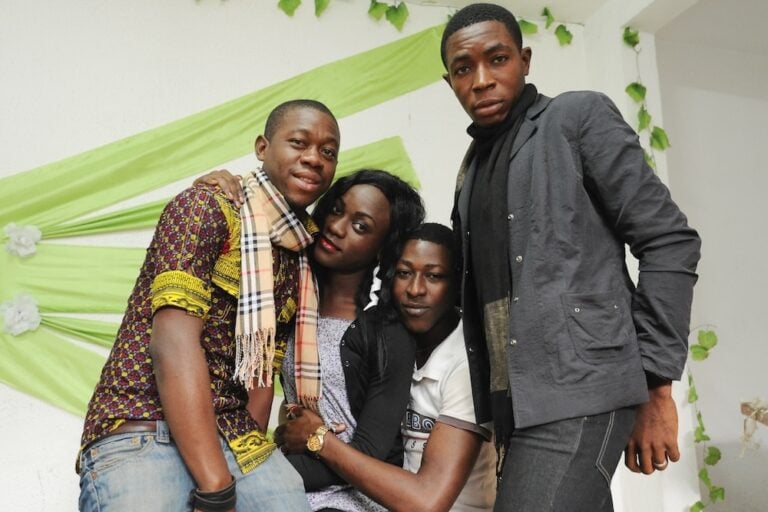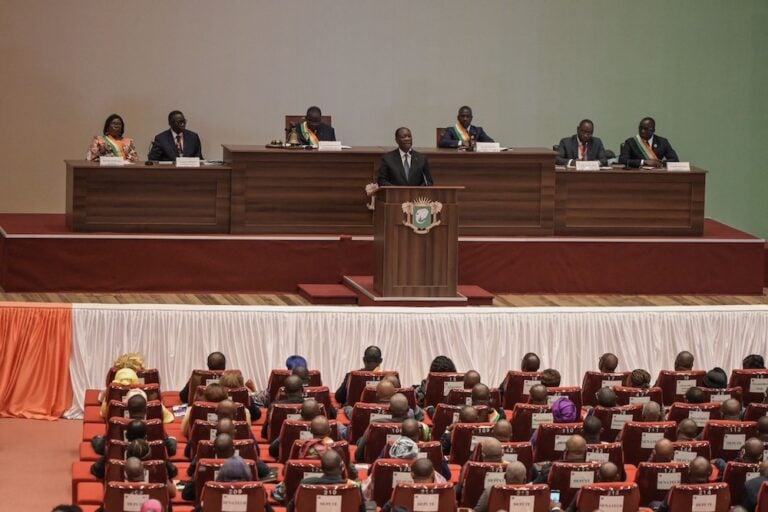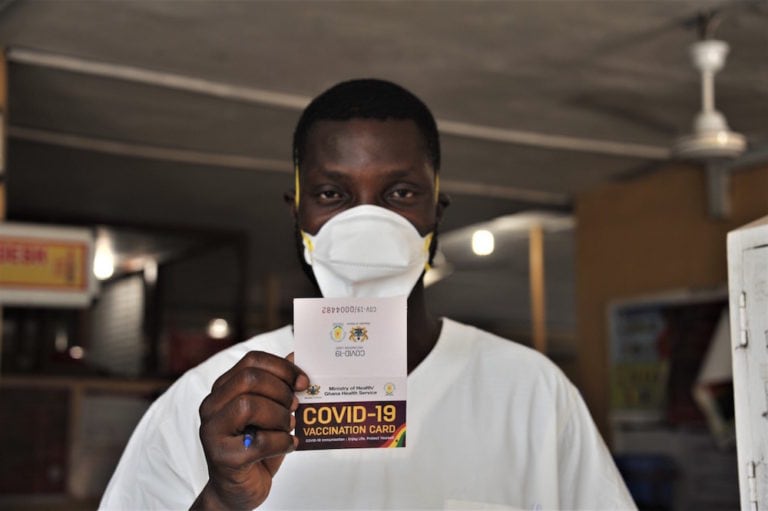(CPJ/IFEX) – In a 30 March 2004 letter to President Laurent Gbagbo, CPJ expressed its concern about a series of attacks against journalists by security forces during recent mass opposition demonstrations in Côte d’Ivoire. While more than half a dozen Ivoirian journalists have reported being physically attacked by officials, many more were arrested, intimidated, and […]
(CPJ/IFEX) – In a 30 March 2004 letter to President Laurent Gbagbo, CPJ expressed its concern about a series of attacks against journalists by security forces during recent mass opposition demonstrations in Côte d’Ivoire. While more than half a dozen Ivoirian journalists have reported being physically attacked by officials, many more were arrested, intimidated, and harassed while covering the protests.
On 25 March, thousands of people marched in the streets of Abidjan in a demonstration organized by the political opposition to protest the president’s alleged failure to fully implement the January 2003 Marcoussis peace agreement between the rebels and the government, by, among other things, devolving some presidential powers to other officials. The protests, which left at least 25 dead, were described by the president as an insurrection designed to “undermine the foundations of the state,” Agence France-Presse reported.
During the protests, the following journalists and media workers were harassed by security forces:
Dembélé Al Séni and Agbola Mesmer, a reporter and photographer, respectively, for the private pro-opposition daily “Le Patriote”, were attacked while covering the marches. Al Séni and Mesmer were arrested by police while they were observing the protests from a gas station shop, Al Séni said. After the two identified themselves as journalists, they were taken to the local police station where they were detained and severely beaten before being released. They were treated at a hospital, but neither has been able to return to work.
Kady Sidibé, a photographer for “Le Patriote”, was arrested by members of the Republican Guard while covering the demonstration in Treichville, in southern Abidjan. She was beaten after identifying herself as a journalist and taken to a police station where, she said, she was accused of being a rebel and threatened with rape and death. She was detained for several hours before being released. According to the daily’s editor-in-chief, Sidibé’s camera, which was confiscated by police, was not returned until the morning of 30 March.
Guira Safi, Soumahoro Vamara and Kone Malick, copy editor, driver, and webmaster, respectively, for the private pro-opposition daily “Le Libéral Nouveau”, were brutally attacked by gendarmes. The three were returning home from work when they were stopped at a roadblock and interrogated. When they said that they worked for “Le Libéral Nouveau”, the officers proceeded to beat them. Safi and Vamara were later taken to the hospital for treatment. They were released from the hospital on 28 March, but have not been able to return to work.
Presidential guards at a roadblock stopped a car carrying Habiba Dembélé, a reporter for the state-owned television station TV2, and Dramé Lancine, a TV2 cameraman. According to local sources, the guards had arrested several protesters and told the journalists to stop filming them. After the crew showed the guards their press cards, the guards threatened them with physical violence, saying that they knew where the journalists lived and would kill them. The guards confiscated Dembélé’s notes, as well as the journalists’ video camera and the keys to their car. Lancine was told to erase the footage from his videocassette. According to sources, an army officer who arrived on the scene told the guards to return the journalists’ notes, camera, and keys. The journalists were then released.
Another TV2 team, consisting of journalist Laurent Banga and his cameraman, Joseph Konan, was arrested and brought to a police station, where they were detained for several hours before being released without charge.
These are only a few of the many journalists who have reported being physically attacked, threatened, intimidated or otherwise harassed by Ivoirian security forces during the recent protests. In almost all of the cases, journalists have said that they were specifically targeted for their work.
In addition to attacks on individual journalists, several news outlets were censored during and after the demonstrations. Three foreign radio stations, Radio France Internationale (RFI), BBC and Africa No. 1, went off the air in Abidjan around midday on 25 March. Agence France-Presse quoted an RFI spokesperson as having said on 25 March that the transmitter cutoff was not due to technical reasons but was “probably deliberate,” given the “tension” in the city.
Transmitters for the three radio stations are managed by one local company, SITEL, and are situated in the same building in the heart of the “Red Zone” surrounding the presidential palace, which government forces had declared off limits on 25 March. CPJ sources said that unidentified individuals forcefully disconnected the transmitters but had not stolen any equipment. Technicians were unable to access the area until 29 March, as it was still sealed off. Broadcasts resumed at around 1:00 p.m. (local time) on 30 March. No official explanation has been given, in spite of journalists’ inquiries.
CPJ expressed deep concern about these attacks on journalists and the apparent censorship in Côte d’Ivoire. Recent tensions between the president’s Ivoirian Popular Front party and the political opposition, as well as violent clashes between supporters of the two sides, have created a dangerous working environment for the media.


